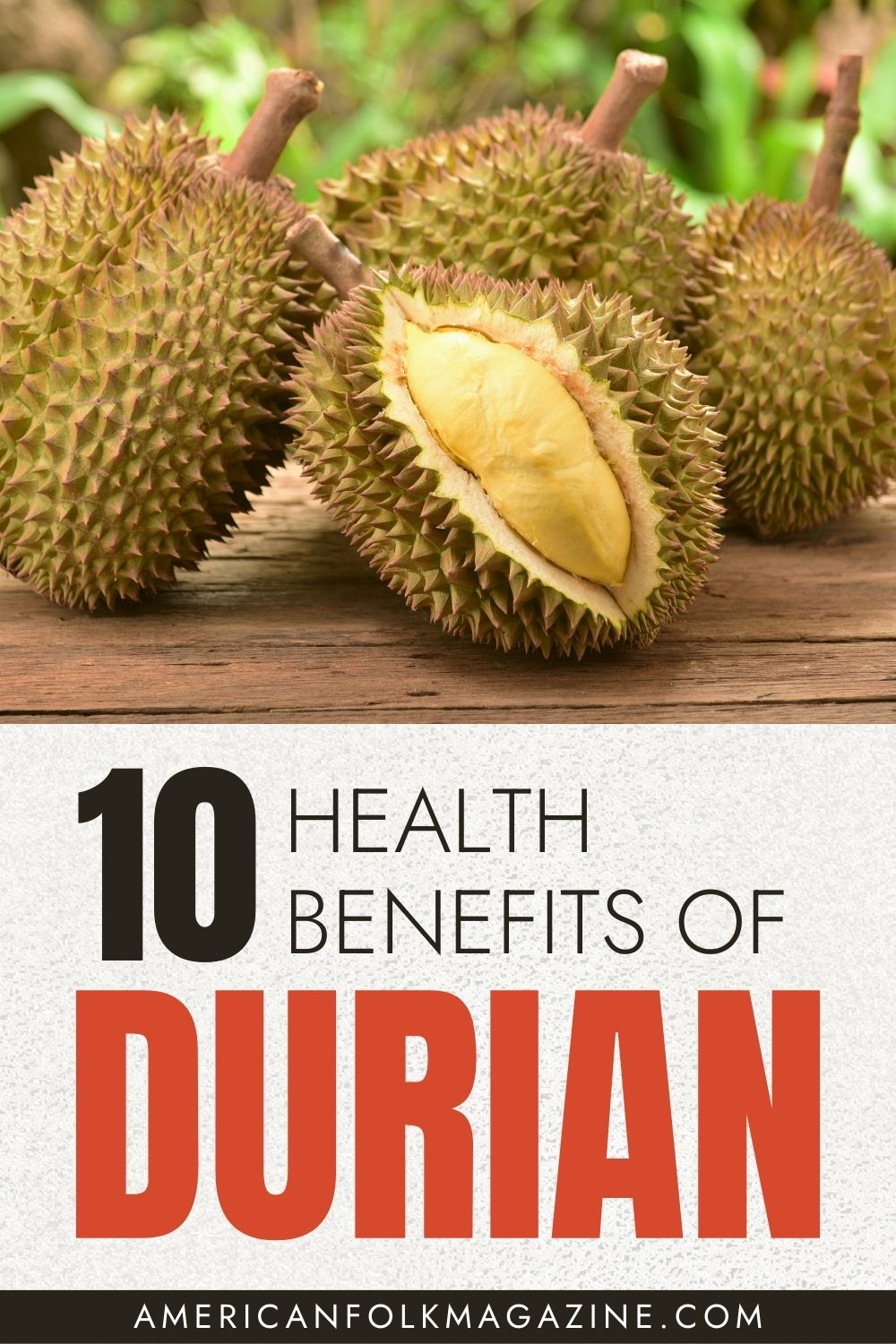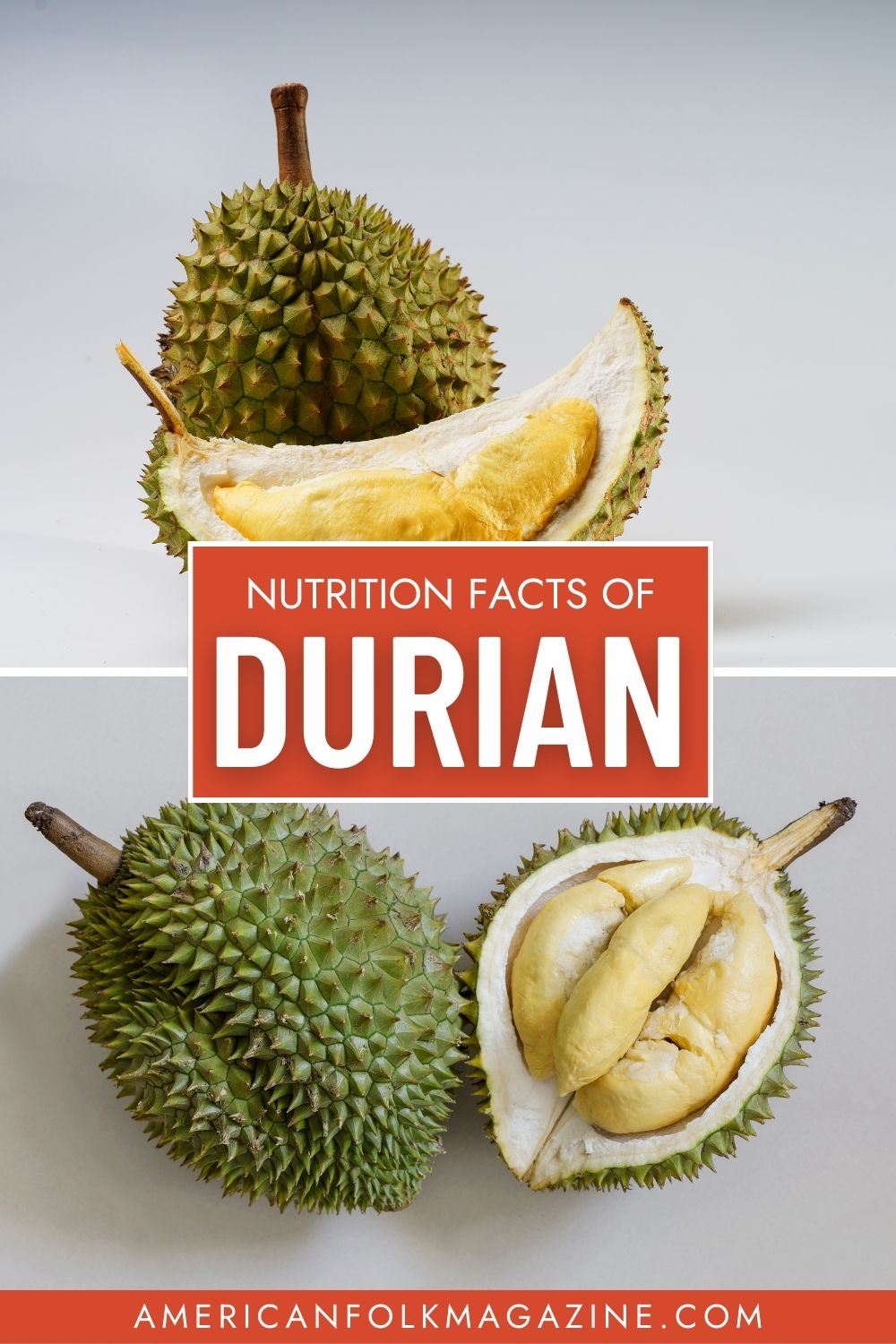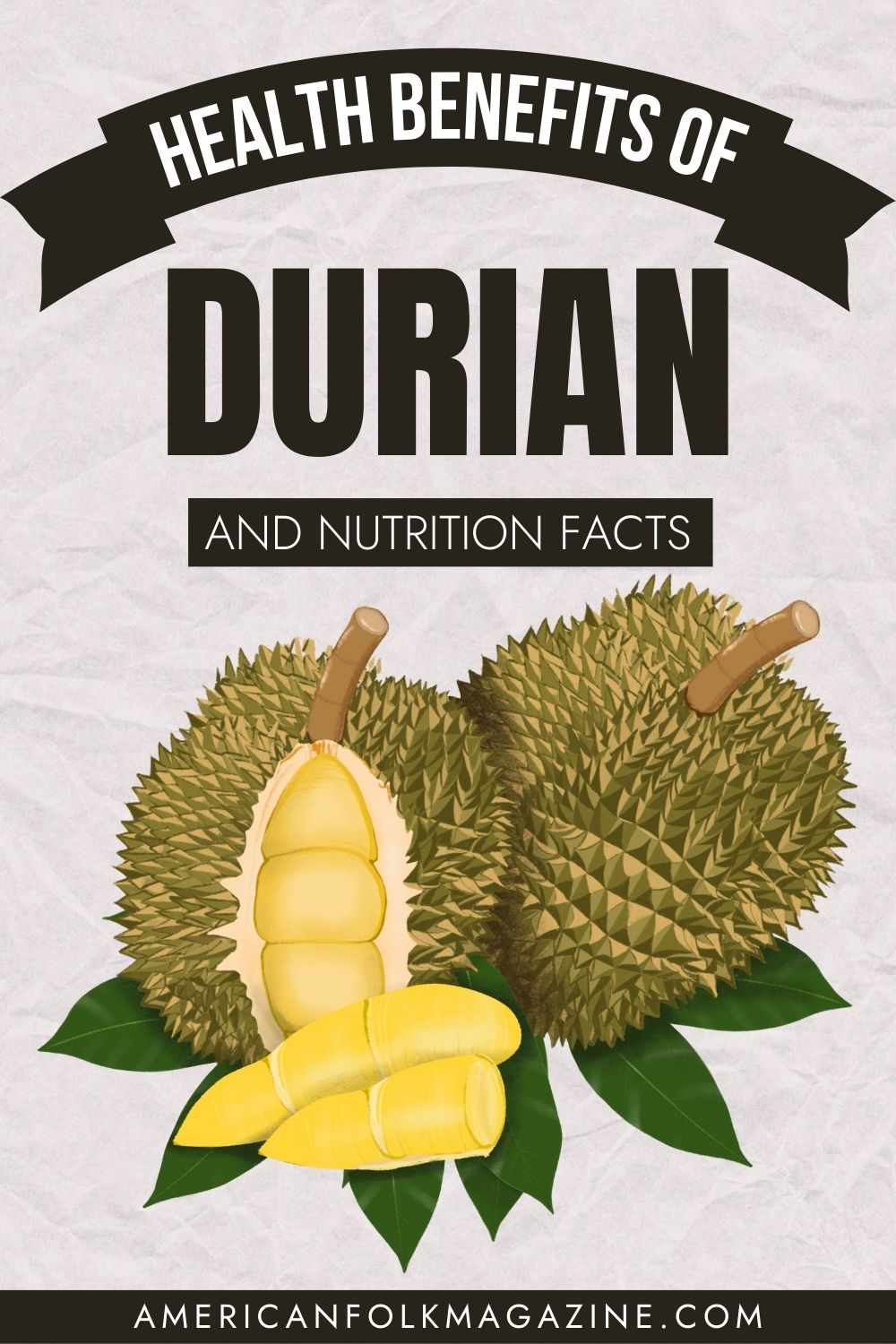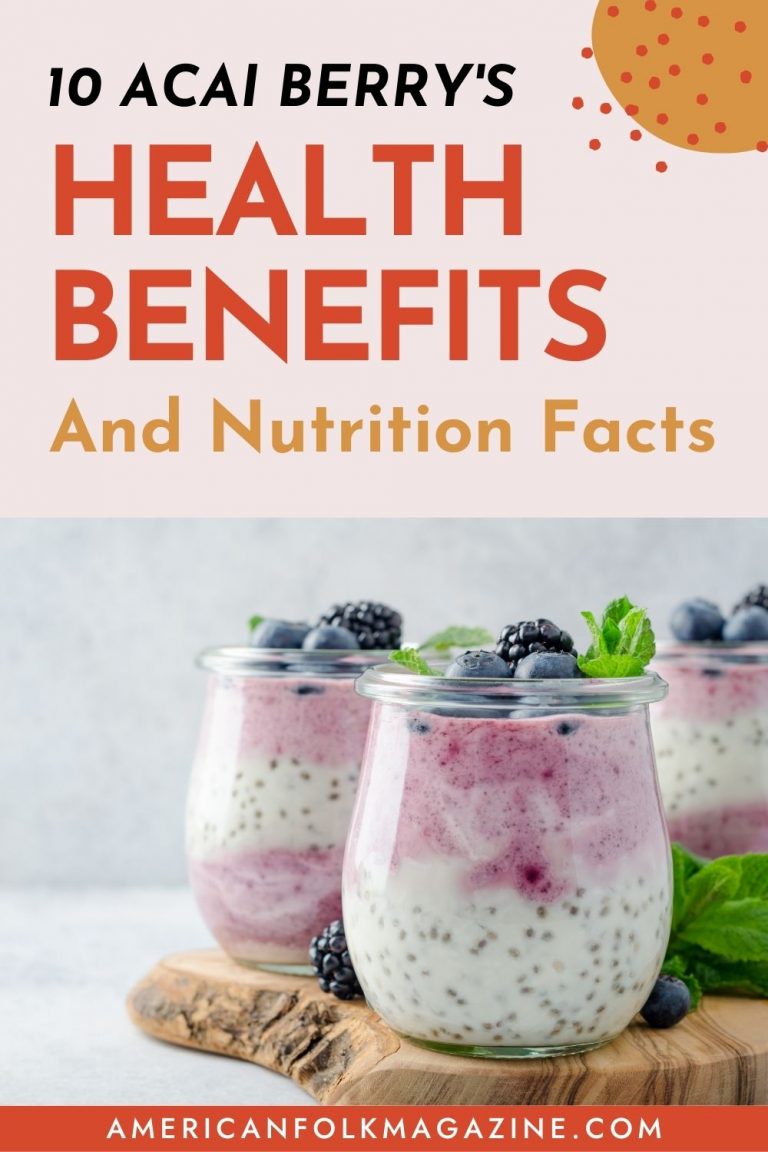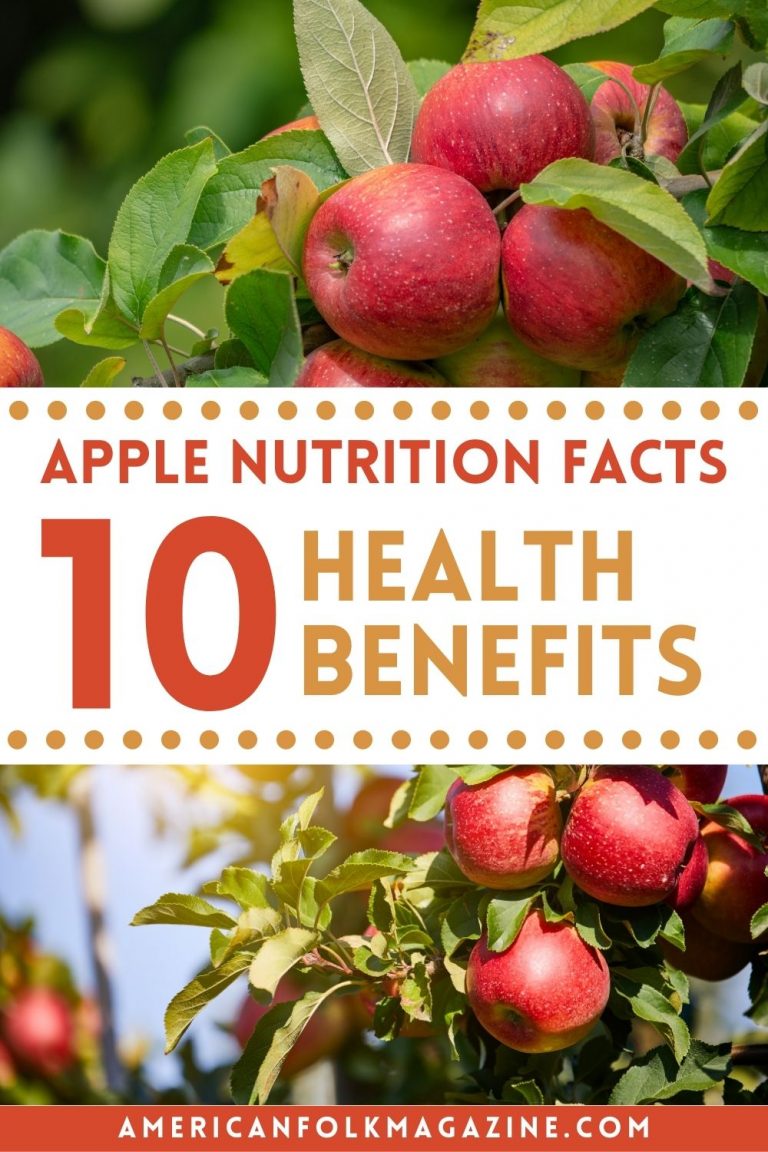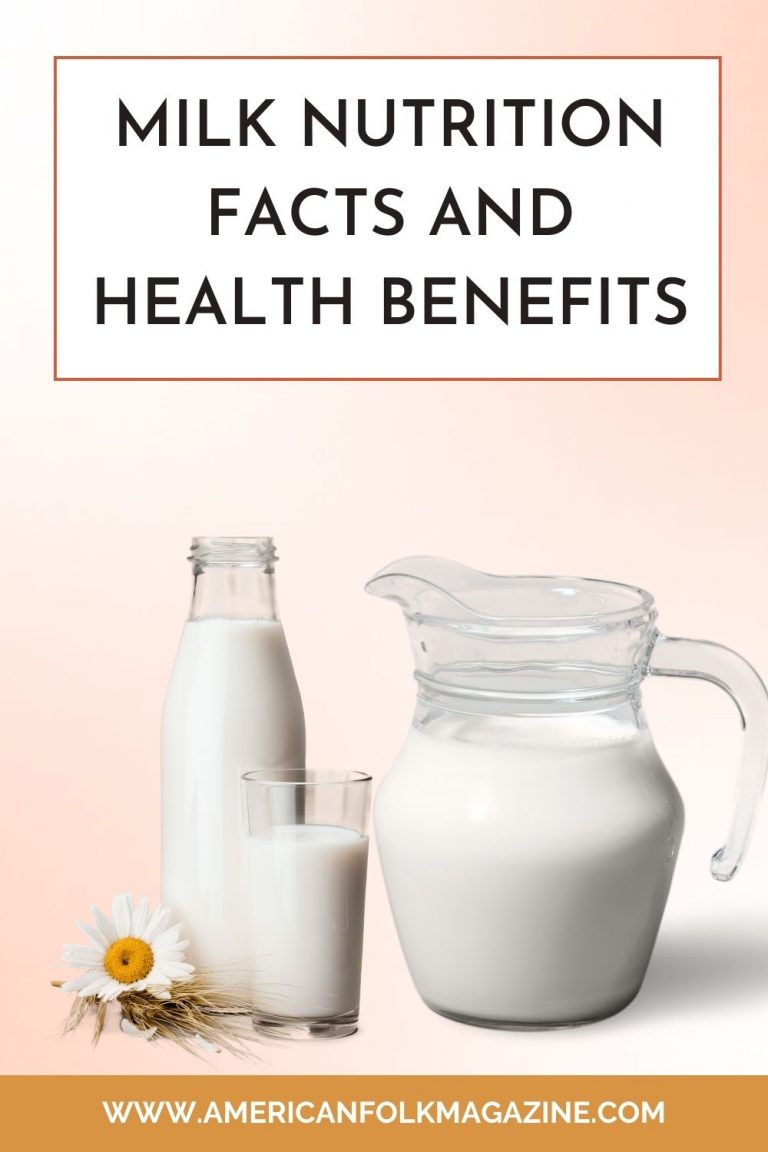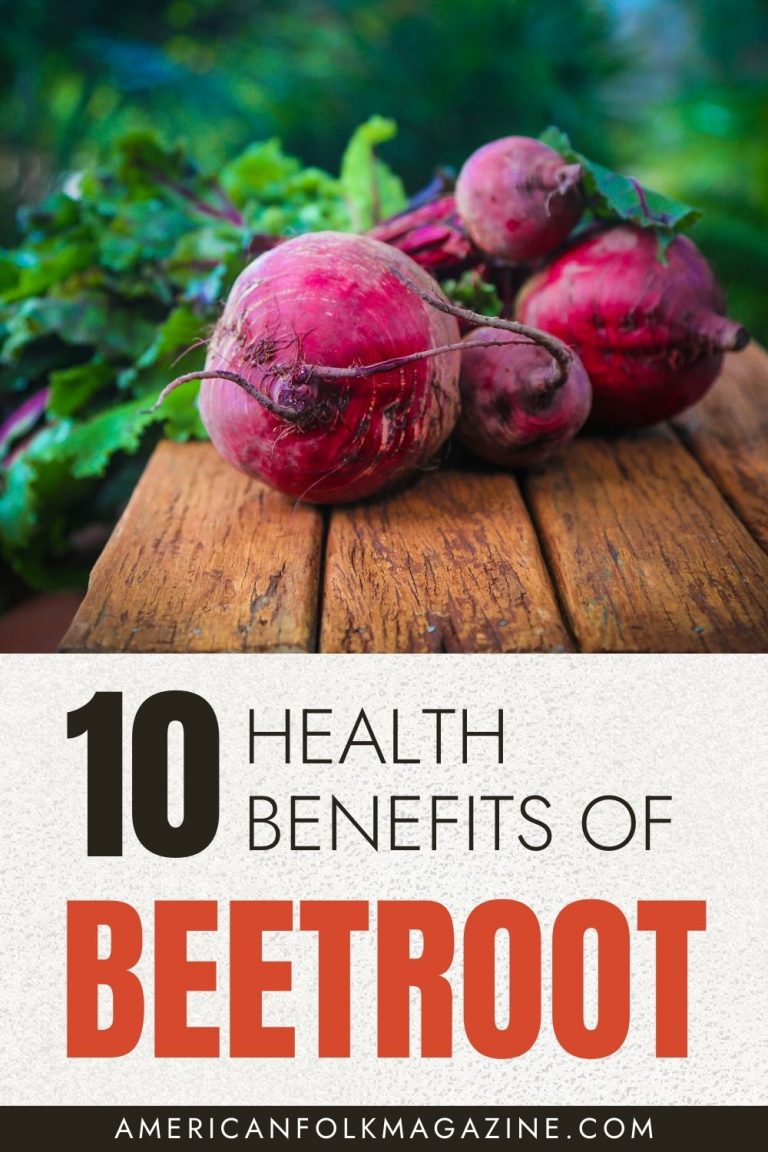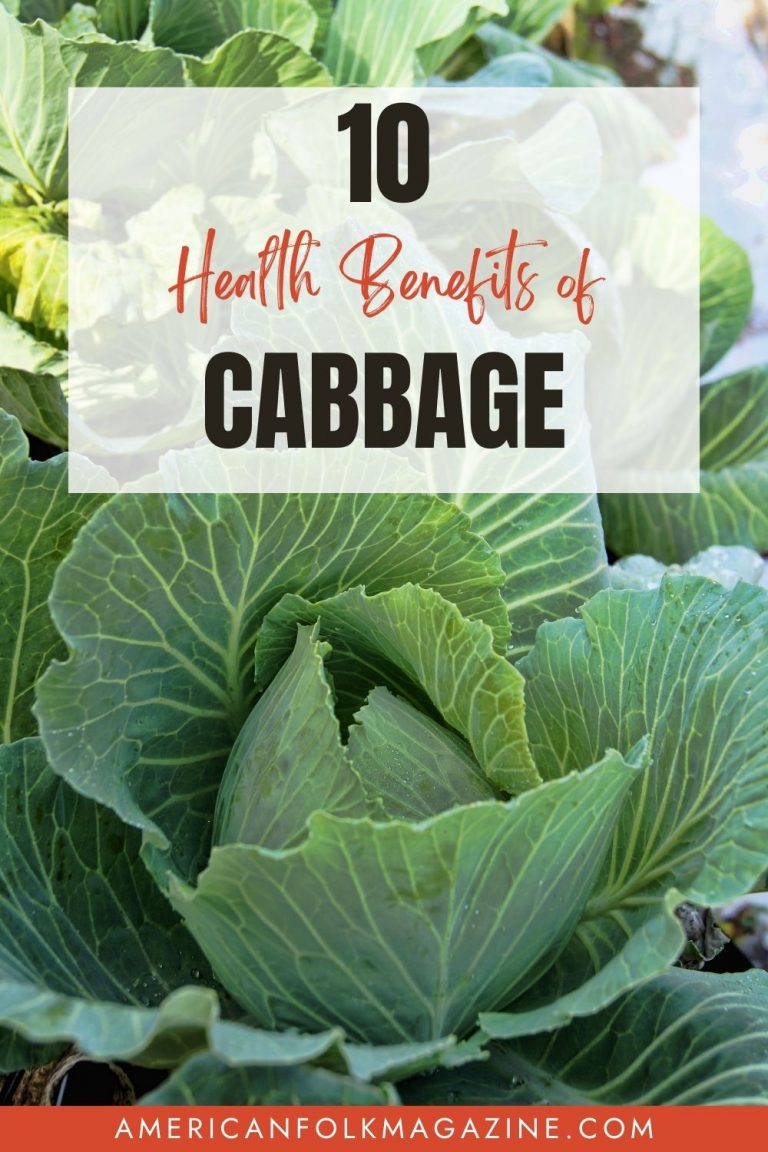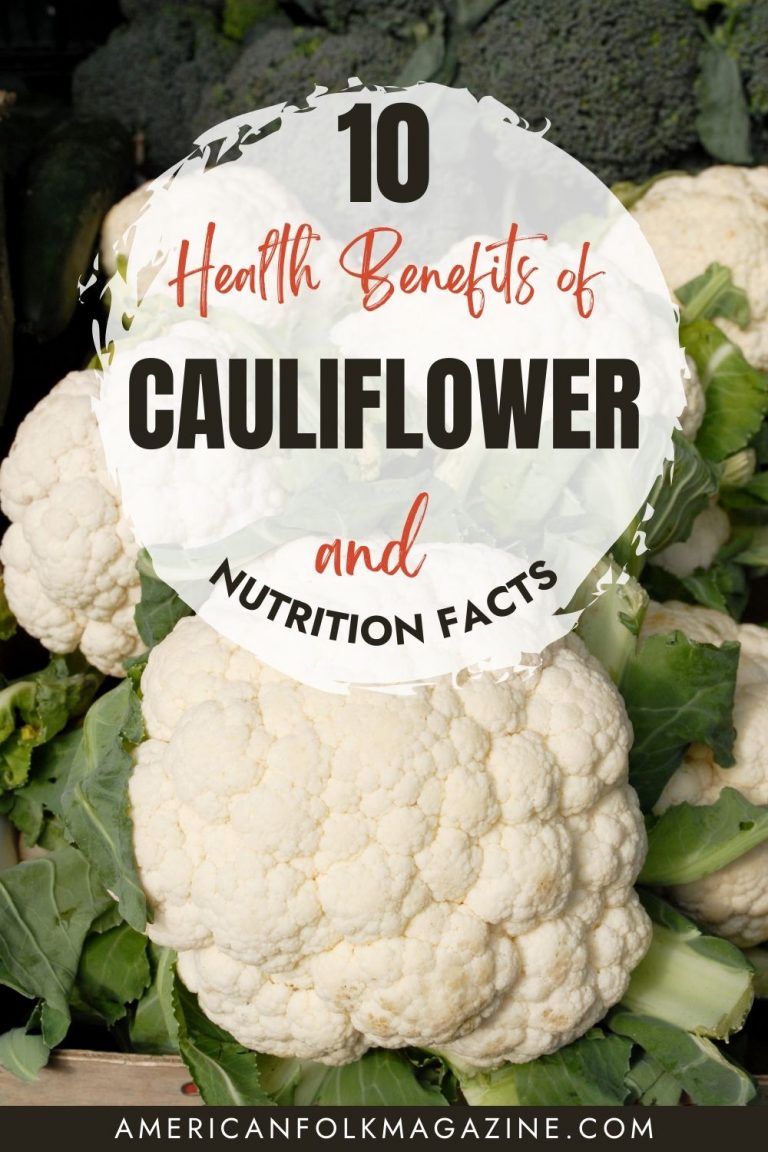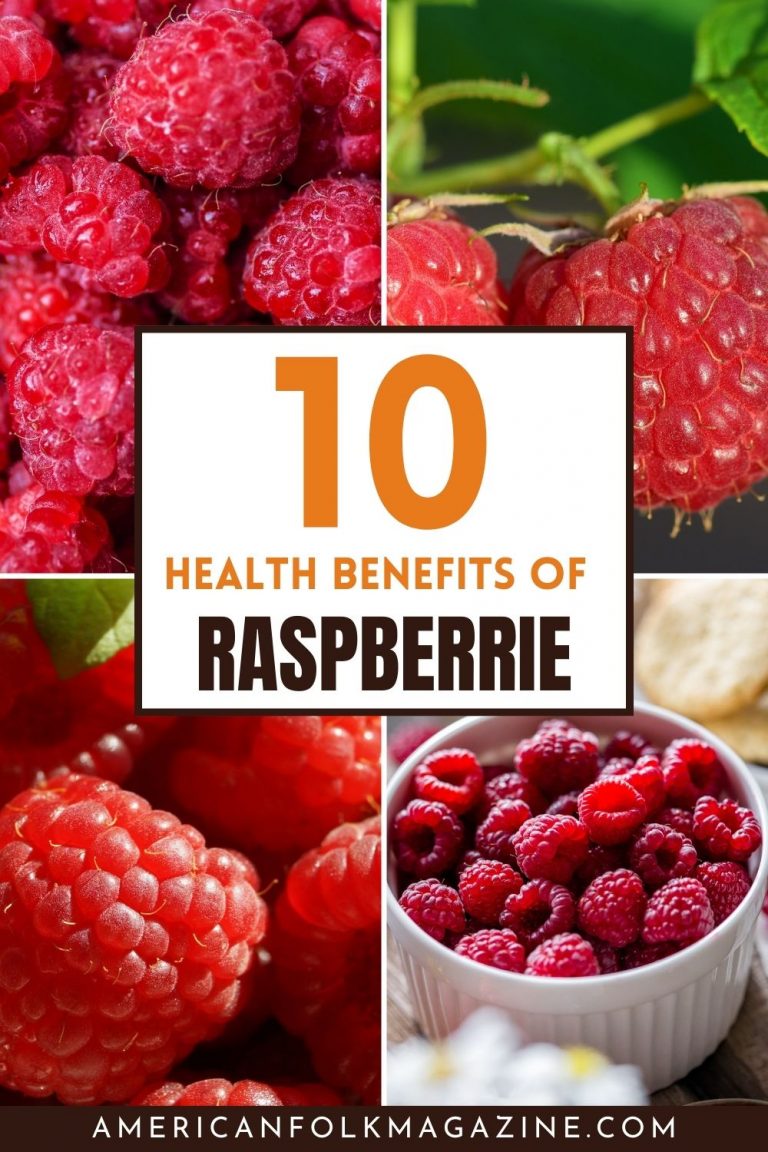Durian is a tropical fruit that is known for its distinct, pungent aroma and spiky exterior. It is a popular delicacy in Southeast Asia, where it is often referred to as the “king of fruits.”
In this article, we will explore the various health benefits of durian, from its ability to boost energy levels to its potential to improve heart health.
We will also examine the nutritional content of durian in more detail, providing an overview of the vitamins, minerals, and other nutrients that make this fruit so beneficial for health.
Durian Nutrition Facts
While the fruit’s smell might not be for everyone, its nutritional value is undeniable. Durian is an excellent source of vitamins and minerals, making it a healthy addition to any diet.
According to the USDA’s FoodData Central database and the FDA’s published daily values, here are the vitamins and minerals present in durian per 3.5 oz (100-gram) serving:
| Vitamin/Mineral | Amount per Serving |
|---|---|
| Vitamin C | 22% of the daily value (DV) |
| Thiamin (B1) | 31% DV |
| Vitamin B6 | 19% DV |
| Riboflavin (B2) | 15% DV |
| Folate | 9% DV |
| Niacin (B3) | 7% DV |
| Potassium | 10% DV |
| Phosphorus | 4% DV |
| Magnesium | 5% DV |
As shown in the table, durian is a good source of various vitamins, including vitamin C, thiamin, vitamin B6, riboflavin, and folate. These vitamins are essential for maintaining good health and preventing diseases.
Durian is also a source of potassium, phosphorus, and magnesium, which are important minerals for maintaining healthy bones, muscles, and nerves.
Additionally, durian is a good source of dietary fiber, which is important for maintaining a healthy digestive system and preventing constipation. A 3.5 oz serving of durian contains about 9.2 grams of fiber.
Durian is also relatively low in calories, with a 3.5 oz serving containing about 357 calories. However, it is important to note that durian is high in fat, with a 3.5 oz serving containing about 13 grams of fat.
While some of this fat is healthy unsaturated fat, it is still important to consume durian in moderation as part of a balanced diet.
Top 10 Health Benefits of Durian
Durian is a nutritious fruit that contains several vitamins, minerals, and antioxidants. It is also known for its unique smell and taste. Here are the top 10 health benefits of durian:
1. Promotes Digestive Health
Durian is an excellent source of fiber, which is essential for promoting digestive health. The fiber in durian helps to regulate bowel movements and prevent constipation. It also helps to maintain a healthy gut microbiome, which is essential for overall digestive health.
2. Strengthens Immune System
Durian is rich in vitamin C, which is essential for a healthy immune system. Vitamin C helps to boost the production of white blood cells, which are responsible for fighting off infections and diseases.
3. Supports Bone Health
Durian is a good source of calcium and potassium, which are essential for maintaining strong and healthy bones. Calcium is important for bone density, while potassium helps to prevent the loss of calcium from the body.
4. Aids in Healthy Aging
Durian is rich in antioxidants, which help to protect the body against free radicals that can cause cellular damage. Antioxidants also help to slow down the aging process and reduce the risk of chronic diseases.
5. Improves Cardiovascular Health
Durian is a good source of potassium, which is essential for maintaining a healthy heart. Potassium helps to regulate blood pressure and reduce the risk of heart disease.
6. Boosts Mental Health
Durian is rich in vitamin B6, which is essential for brain function and mental health. Vitamin B6 helps to regulate mood and reduce the risk of depression.
7. Enhances Sexual Health
Durian contains zinc, which is essential for reproductive health. Zinc plays a role in the production of testosterone and sperm, and can help improve libido and fertility.
8. Promotes Skin Health
Durian contains vitamin C, which is essential for the production of collagen. Collagen is a protein that gives skin its elasticity and helps prevent wrinkles and other signs of aging.
9. Supports Eye Health
Durian contains vitamin A, which is essential for eye health. Vitamin A helps prevent night blindness and other eye disorders by maintaining the health of the retina.
10. Aids in Weight Management
Durian is a dense, calorie-rich fruit that can help suppress appetite and promote weight loss. It contains healthy fats that can keep you feeling full for longer and can help prevent overeating.
Overall, durian is a nutritious fruit that can provide several health benefits. Incorporating it into a balanced diet can help promote overall health and well-being.
How to Incorporate Durian into Your Diet
Durian can be enjoyed in a variety of ways, making it easy to incorporate into your diet. Here are a few ideas to get you started:
Fresh Durian
Fresh durian can be eaten on its own or added to smoothies, salads, and other dishes. Here are some tips for preparing fresh durian:
- Cut the durian open: Use a sharp knife to cut through the thick skin and remove the flesh from the seeds.
- Remove the seeds: The seeds are not edible, so be sure to remove them before eating the flesh.
- Store properly: Fresh durian should be consumed within a day or two of being opened. If you have leftover durian, store it in an airtight container in the fridge for up to three days.
Frozen Durian
Frozen durian is a convenient option for those who don’t have access to fresh durian or want to enjoy it year-round. Here are some ideas for using frozen durian:
- Make smoothies: Blend frozen durian with your favorite fruits and milk or yogurt for a delicious and nutritious smoothie.
- Add to desserts: Frozen durian can be used to make ice cream, sorbet, and other desserts.
- Use as a topping: Sprinkle frozen durian over oatmeal, yogurt, or granola for a tasty and nutritious topping.
Potential Risks and Precautions of Consuming Durian
While durian is known for its numerous health benefits, there are also some potential risks and precautions to consider before consuming this tropical fruit.
High Caloric Content
Durian is a high-calorie fruit, with one cup of chopped fresh or frozen durian providing 357 calories. This can be a concern for individuals who are trying to manage their weight or maintain a healthy diet. It is important to consume durian in moderation and balance it with other nutrient-dense foods.
High Sugar Content
Durians are also high in sugar, with one cup of chopped fresh or frozen durian containing 66g of carbohydrates. This can be a concern for individuals with diabetes or those who are trying to manage their blood sugar levels.
It is recommended to limit the intake of durian or consult with a healthcare provider before consuming it.
Allergic Reactions
Durian is known for its strong odor, which can be off-putting to some individuals. However, it can also cause allergic reactions in some people. Symptoms of an allergic reaction to durian can include hives, itching, swelling, and difficulty breathing.
Individuals who are allergic to other fruits or have a history of food allergies should be cautious when consuming durian.
Interference with Medications
Durian contains compounds that can interfere with certain medications, particularly those that are metabolized by the liver. These compounds can block the enzymes that break down medications, leading to higher levels of the drug in the body.
Individuals who are taking medications should consult with their healthcare provider before consuming durian.
Safety Precautions
When consuming durian, it is important to take safety precautions due to its spiky outer shell. Use gloves or a towel when handling durian to avoid injury. It is also important to properly dispose of the durian shell to prevent injury to others.
Overall, while durian has numerous health benefits, it is important to be aware of its potential risks and precautions before consuming it.
By consuming durian in moderation and consulting with a healthcare provider when necessary, individuals can safely enjoy the benefits of this tropical fruit.
References:
- Durian health benefits and nutrition facts – Nutrition: Health Benefits and Facts – Times Foodie
- Durian Fruit: Smelly but Incredibly Nutritious (healthline.com)
- Durian Nutrition Facts and Health Benefits (verywellfit.com)
Pin It In Your Board
